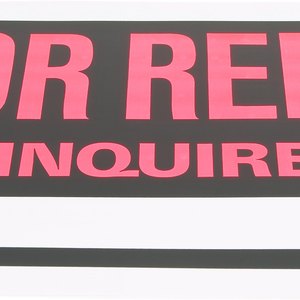
When renting property, it’s a good idea to carry renters insurance. A tenant might even be required to do so by the landlord, who might insist that the tenant add her name as an "additional interest" or "third-party designee" on the policy. This ensures that the insurer alerts the third party, in this case the property owner, if the policy cancels or doesn't renew.
Covering Renters
Property owners purchase insurance on their rental property to protect the property against disasters, such as fire. The policy typically covers structural damage or any of the owner’s property in the dwelling, but it does not insure the renter's personal belongings. Renters insurance protects the renter's possessions, covers the tenant in the event of lawsuits by guests or visitors injured in the home and provides additional living expenses if the renter is displaced after a disaster makes the house uninhabitable.
Protecting Landlords
Landlords require tenants to buy renters insurance for several reasons. First, it decreases the chance the tenant will sue the landlord if his possessions are damaged as a result of an event covered by the owner’s policy. The renters policy can also pay for the removal of the renter's damaged property left behind after such a disaster. In addition, liability coverage can protect the landlord if someone is injured or has property damaged on the premises, especially if the incident results from the negligence or actions of the tenant. If it results from the landlord’s negligence, the owner’s policy covers the damages or lawsuit costs.
Adding a Third Party Designee
A landlord named as an "additional interest" can monitor the state of the policy and make sure it stays in force. The landlord receives all relevant correspondence pertaining to the policy, as the insurer will notify the third party of any changes in the policy. This way the landlord receives notice if the renter provides proof of insurance at the beginning of the lease but then cancels or fails to renew the policy.
Paying for the Policy
Both the renter and the landlord benefit from the protections of renters insurance -- and for a relatively inexpensive price. Typically, a renters insurance policy costs less than $20 a month, depending on the value of the renter’s possessions. As of 2019, renters in North Dakota pay the lowest monthly premium ($9.58), and renters in Mississippi pay the highest monthly premium ($20.33). Most major insurers add an additional interest or third-party designee to the policy for no additional cost.
References
- Effective Coverage: Additional Interest Vs. Additional Insured
- Effective Coverage: What Is A Renters Insurance Interested Party?
- Value Penguin: Average Cost of Renters Insurance (2019)
- Insurance Information Institute. "Your Renters Insurance Guide." Accessed May 11, 2020.
- State Farm. "How Can Renters Insurance Protect Both Landlord and Renter?" Accessed May 11, 2020.
- Travelers. "Renters Liability Coverage." Accessed May 11, 2020.
- USA.gov. "Property Insurance." Accessed May 12, 2020.
- National Association of Insurance Commissioners. "NAIC Releases Report on Homeowners Insurance." Accessed May 12, 2020.
- Insurance Information Institute. "Renters Insurance." Accessed May 12, 2020.
Writer Bio
Chris Brantley began writing professionally for a financial analysis firm in 1997. From 2000 to 2004, he worked as a financial advisor, specializing in retirement planning and earned his Series 7, Series 66 and insurance licenses. Brantley started his full-time writing career in 2012 and has written for a variety of financial websites, including insurance, real estate, loan and investment sites. He holds a Bachelor of Arts in English from the University of Georgia.

